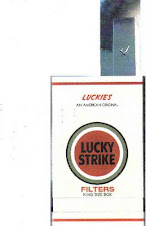In the government's Cash for clunkers, no cash is exchanged, and no clunkers, (which per Merriam-Webster's definition = a dilapidated automobile, not a perfectly running car that's less than fuel-efficient) are taken off owners' hands. In an article by Caroline Baum posted on Mike Shedlock's website, she describes the broken window fallacy whereby it's believed that breaking a window is good for the economy, as it employs the services of a glazier. Why it's called a fallacy is that the money spent on the glazier could have theoretically been better spent elsewhere. Ms Baum then uses this argument to underpin her own, namely that, in the cash for Clunkers program:
"What is unseen is what would have been produced by the private sector had the government not confiscated future revenue via taxation."
That is a specious argument, and proven, in the last decade, to be consummately false. Just as capitalism's triumphalists have cheered the skewering of the communistic economies, while conveniently forgetting the shameful, horrible abuses by capitolists (not a misspelling, but my coining of the New Mercantilism ... Capitalism in the 21'st Century is impossible without Capitolism: the pouring of billions of dollars into a country's Capitol City to gain further advantage for the already advantaged, Adam Smith be damned) whose stinginess and hubris occasioned its birth.
Like that particularly myopic set, Ms Baum seems to forget that we've seen exactly what the private sector would've done with monies not confiscated via taxation: they'd have indulged in currency speculation, hell, they still are speculating, or on new yacht-building companies, more Linens 'R Us, more Sharper Images and more New Homes in far off subdivisions accessible only by more than an hour's driving in those new "efficient" SUV's bought with the Clunkers' destruction.
Although far from agreeing with the Orwellian program, it still rankles that this idiocy that the private sector's individual greed and myopia, based on a fallacious assumption of ever-growing energy supply (specifically an ever-growing cheap energy supply), will lead to a balanced humming economy, is still clung to; even after it just failed spectacularly (as its promulgators knew full well it would) in full view of the entire globe.
They simply can't accept the fact that the market is there to serve the people, not the other way around, nor that as they had their fun running it into the ground, the most enormous misallocation of investment capital in the history of the world took place, in fact, continues to take place, because the government against which Ms Baum rails is in the hands of the very Corporations that need to have their excesses reined in. The monies they generate need to go not to the shareholders or into the coffers of Americorps, but into the hands of the small business owners trying to satisfy the needs of a more and more desperate customer base to buy those things they need to survive, not to use billions of dollars to buy ads to convince the populace they need more brands of laundry detergent and another line of cosmetics, or celebrity scents.
What is unseen in this particular model that the likes of Ms Baum like to ignore, is what would've been produced had the entire economy not been skewed to provide for the stoking of narcissistic vanities by making unprovable ridiculous claims of lasting beauty and health in a culture that celebrates the rise in shares of McDonald's, or Coca Cola ... again, no mention is made of what could be produced in an economy that doesn't have to pay for the deleterious health effects of eating the horrible artery-clogging, soul-killing fare of fast-food as they use their profits to push out more healthful restaurants and bring their death-food to other countries.
So tell me the Cash for Clunkers program is no good because there's no cash, and the trade-ins aren't clunkers, or that it's no good because it increases the CO2 released to the environment, as all those vehicles have to be manufactured, or that having more efficient vehicles induces people to locate further and further from where they work, or because it simply siphons future demand into the present, presaging a future collapse in demand, or that it encourages an expansion of an already glutted productive capacity in car manufacturing, but puleeze, don't continue to harp on this simple-minded rubric that the private sector, ie those with their dollars already tied up in bad investments that they are now focused on the Government (using those tax dollars Ms Baum suggests it shouldn't have) making good for them, will magically make malinvestment disappear. It won't. It has, in fact, been made quite manifest, that the opposite will happen. Private investment dollars are by their nature conservative and chase after what they consider to be out-sized risk-free investments; hence the overcapacity in productive capability of everything that is considered hi-margin products: from SUV's to Cisco switches, and the languishing of any company that produces real necessities such as window-glazing.
What we forget in our rush to cash in our own chips, is that that glazier sitting around with no work and slowing losing his skills and going out of business, is that a hurricane will hit someday, but there'll be no one left who has the foggiest idea of how to fix the shattered windows.
Tuesday, August 11, 2009
Subscribe to:
Post Comments (Atom)



















































1 comment:
Fortunately the entire private sector is not engaged in wholesale pillage.
"Cash for Clunkers" should be called the "Wimpie Program" or "I'll Gladly Pay You Tuesday for a Hamburger Today"
We need either to somehow limit the personhood of large corporations, and get their money out of our Congress without restricting the speech of their stockholders, or we need to repeal all ethics laws and enforce full disclosure, so we know who's bought and paid for. The latter may be the best and easiest course. We can then vote by Brand affiliation. Congresscritters can wear sponsor patches like NASCAR drivers. If we legalize gambling we can then allow betting on elections to finance campaigns.
It's a Festival!
Post a Comment